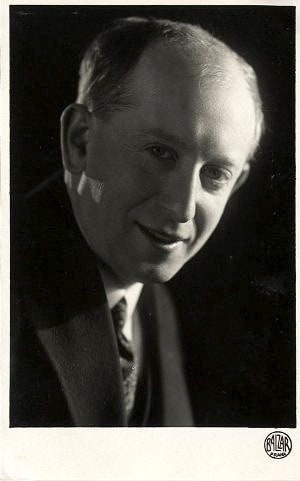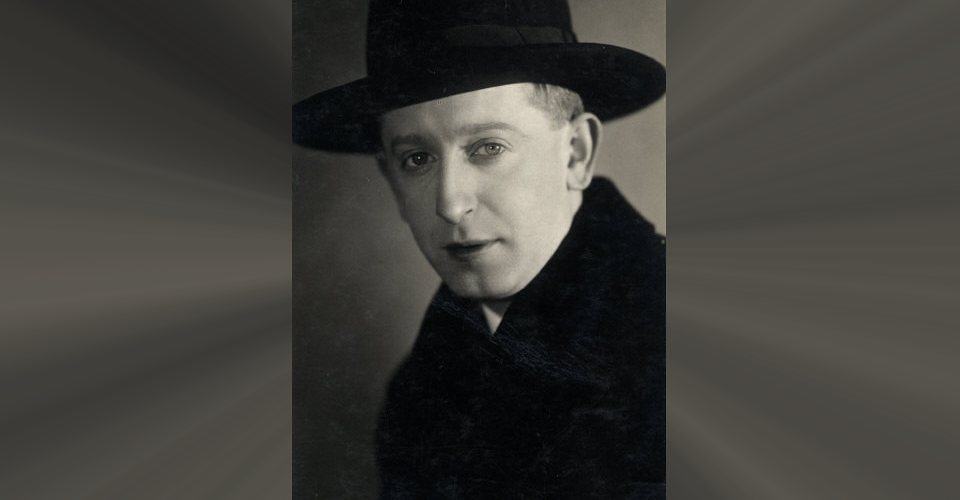 Today (well, I guess it depends on when you read this) – 8 January 2016 – marks the 120th anniversary of the birth of the Czech-American composer Jaromír Weinberger. But why should you care? Why should I?
Today (well, I guess it depends on when you read this) – 8 January 2016 – marks the 120th anniversary of the birth of the Czech-American composer Jaromír Weinberger. But why should you care? Why should I?
Weinberger was one of the many thousands of musicians displaced by the Third Reich. But, musical considerations aside, his plight is typical of a small percentage of people who defy precise categorisation in terms ‘victim’ and ‘survivor’. To demonstrate the significance of this distinction, I will tell you the story of my involvement from the beginning.
Back in June 2007, when I was living in Iceland, I received an email from a former student at the university at which I had previously taught in the States, someone with whom I have remained in contact. In his message, he asked if I would come to Los Angeles and play a saxophone concerto with one of the orchestras of which he was music director. I agreed and began to read through the concerto literature to see what I might recommend as a suitable suggestion. Progressing alphabetically through the repertoire on my shelves, I eventually came to ‘W’. I placed my copy of the Weinberger Saxophone Concerto on my desk and began to play – and realised what a wonderful, emotionally charged work it is (not to mention technically demanding). Yes, I must play this! I had owned that copy for nearly 35 years and barely looked at it in all that time. Well, like I said, it is technically demanding….
As I had only the solo part and piano reduction, I began to search for the orchestral materials and score on the internet. But after many hours of looking, I couldn’t locate these materials anywhere, not even from the publishers, who informed me that in fact they had never had them. So I began a private investigation and within two days located the score and parts in a basement in South Dakota.
My interest was now piqued. Yes, I had known the ‘Polka and Fugue’ from Weinberger’s opera Schwanda the Bagpiper – what high-school band has not performed this chestnut of the band literature at some point? Besides these two works, I have to confess that I knew nothing more about Weinberger but, if he could write a concerto and an opera, there was obviously something else out there.
That’s where my obsession began: since that day I have spent all my time and resources locating any and all materials relating to Weinberger. I have travelled between Jerusalem, Prague, Bratislava, Berlin, the USA and beyond in search of this elusive man. The more I learned about him, the more questions I raised.
Four years ago I made a breakthrough: I located five crates of materials that had survived from his house in Prague when he fled in 1935. Conservatively, it is the largest single musical find of the last hundred years. These sealed crates contained not only manuscripts and sketchbooks, but hundreds upon hundreds of letters from his days as a student up until the last day he ever spent in Prague. Although other scores and letters survived (they are located in the Weinberger Archive of the National Library at Hebrew University in Jerusalem), those materials pertain almost exclusively to his exile in America from 1939 until his death in 1967.
Among the materials that I located were works that we never knew existed. He was so traumatised by the life-events he had to endure (his flight as a refugee through Austria, France, England, Canada and finally the USA; his mother and sister perishing in a concentration camp; the loss of his home and all his personal possessions and his income; and then finally becoming marginalised and, he felt, redundant as an artist) that he suffered a series of mental breakdowns and heart-attacks. For the rest of his life he never spoke or wrote about any event before 1935. That’s the main reason that there has been so much mis-information about his biography. I hope we’ll now be able to correct the errors and restore Weinberger to his rightful place in musical history through musical editions, recordings and writings.
Fate was obviously kinder to Weinberger than to many other Jewish composers. But his survival came at a cost: if he had suffered the same destiny as Erwin Schulhoff and Pavel Haas, for example, we would undoubtedly have spent more time and research into learning about him. To have survived put him in a time and a place that did not exist before the War, when he was the toast of European musical theatre. The world he entered held no interest for him and reciprocally had no interest in him.
As a second-generation American of eastern European Jewish decent myself, I grew up hearing the stories of my own family’s persecution: one half of the European side of my family died in various concentration camps in Poland, Austria and Hungary; the other half fled to the USA, Cuba, Argentina and beyond. I am not saying that sharing Weinberger’s heritage has allowed his story to resonate with me more than if I did not – but it sure does help….
I began this quest on purely musical principles – a musicological project that was not only academic, but practical as well. It has become historical and personal. The forms it will take include a number of recordings for Toccata Classics, now at the planning stage, and the publication of his letters in several volumes to appear from Toccata Press; my editions of the music I have discovered will be distributed by Subito Music Corporation, based in Vermont. I’ll shortly post a worklist here so that you can see – for all that everyone knows that ‘Polka and Fugue’ – just how of Weinberger’s music remains to be heard.

I’m really looking forward to recordings of Weinberger’s music. I know nothing more than the polka from Schwanda, but, observing his work list on Wikipedia, some of the titles are intriguing alone: a Lincoln symphony; Legend of Sleepy Hollow and a Don Quijote.
It is my intention to scour the St. Petersburg (Florida) area for further manuscripts of this fine composer’s music. I really look forward to Toccata’s future recordings of his music. It is high time this forgotten musician reap some of the rewards of re-discovery.
Dear Alan,
The more hands – the better! I believe all his possessions were sent to his nephew in Jerusalem upon Jane’s death almost a year after Jaromír’s at their lawyers instruction. That said, one never knows – I have found material in the strangest of places even after visiting the same site multiple times.
If I can assist you in any way, please let me know – I am more than willing to assist!
What wonderful news! I was one of those high school bandsmen who first encountered Weinberger via the Polka & Fugue, and have always wanted to hear more. And I HAVE heard more, but mostly in the form of historic recordings. How I’d love to hear things like “Christmas, “Czezh Rhapsdody,” “A Lincoln Symphony,” and the “Under the Spreading Chestnut Tree Variations” in modern sound! Thank you so much for undertaking this project! May it enjoy the success – and may Weinberger at last receive the respect and recognition – that both so richly deserve!
It would indeed be a wonderful thing if A LINCOLN SYMPHONY were to receive a commercial recording.
I am intrigued by the string quartet of his I see that you have published! I have not seen the score but still hope that performances and recordings are in the works.
(Does the fact that its manuscript is at the Israeli archive- according to Worldcat anyways :)… – mean that it is an early work, or were the later manuscripts transferred to that archive too after you discovered them? Well, one way or the other!
Eric,
Please forgive the delay in my response.
This is a late work from the mid 1950’s to 1962 when he stopped writing.
The way I know this is because it is written on Belwin-Mills music paper
that was only issued from the mid-’50’s.
It is a work of nostalgia – longing for a better time now past…